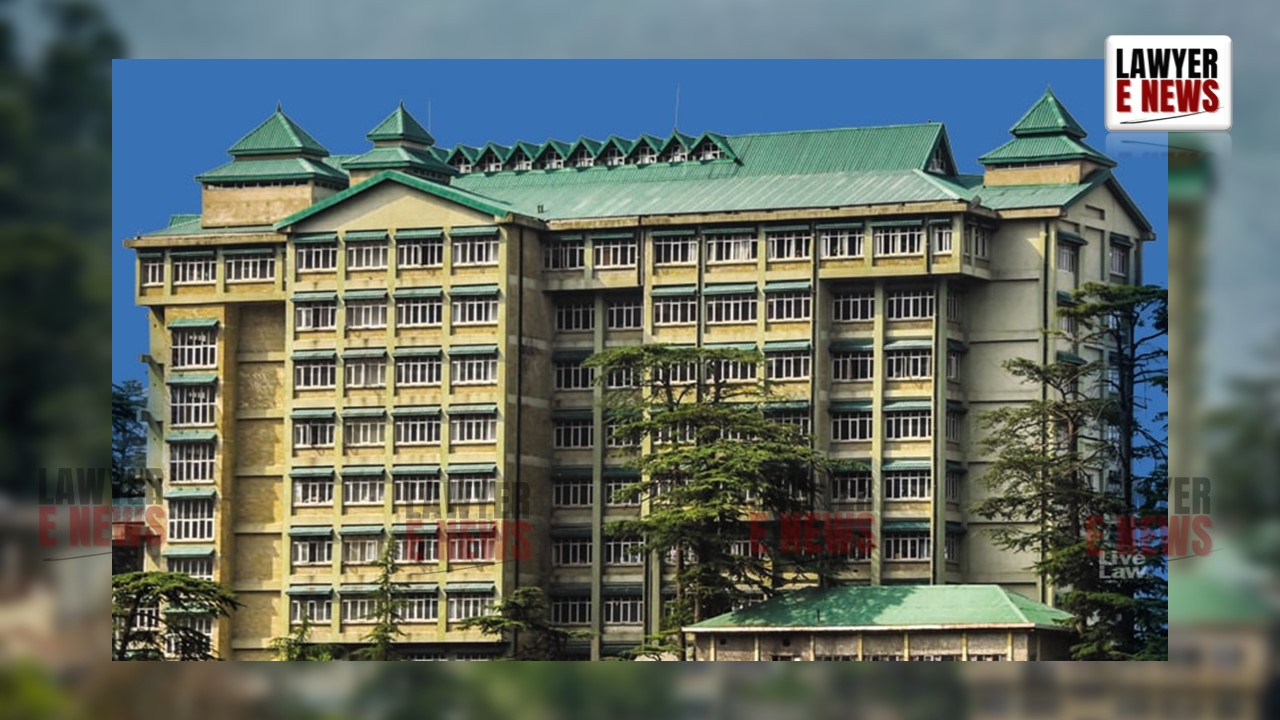-
by Admin
15 February 2026 5:35 AM



High Court reinstates the trial court’s decision, emphasizing the significance of intent and sound mind in the execution of wills.
Introduction:
The Himachal Pradesh High Court has upheld the validity of a 1997 will in a contentious family inheritance dispute, ruling against a later will from 2000. The judgment, delivered by Justice Virender Singh, emphasizes the importance of verifying the intent and sound mind of the testator, especially when multiple wills are presented. The court’s decision reinstates the trial court’s findings, which declared the 2000 will as fraudulent and upheld the 1997 will as the deceased’s last true testament.
The case revolves around the estate of Pohlo Ram, who passed away in 2000, leaving behind contested wills. The plaintiffs, led by Shanti Devi, claimed ownership based on the 1997 will, while the defendant, Joginder Singh, argued in favor of a 2000 will that allegedly named him as the sole beneficiary. The trial court originally ruled the 2000 will as fraudulent, but this decision was overturned by the first appellate court. Shanti Devi subsequently appealed to the High Court.
The High Court scrutinized the evidence surrounding the wills from 1993, 1997, and 2000. The court noted significant inconsistencies and suspicious circumstances in the 2000 will. Justice Virender Singh highlighted the testator’s critical health condition at the time of the 2000 will’s execution, raising doubts about his mental capacity and intention.
The court observed that the 2000 will was allegedly executed just two days before Pohlo Ram’s death. Key witnesses, including DW-10 Braham Dutt and DW-11 Udal Singh, testified that the will was created while Pohlo Ram was in a feeble state with a catheter in place. Despite claims of sound mind, the court found the circumstances surrounding the will’s execution highly suspicious.
The judgment highlighted multiple suspicious elements, such as the lack of references to earlier wills and incorrect information within the 2000 will. The court noted that the testator’s ailment and the presence of a catheter indicated a compromised state of mind, further questioning the will’s authenticity.
The court extensively discussed the principles of evaluating evidence in will disputes. Justice Singh emphasized that a will must clearly demonstrate the testator’s true intention and be executed in a sound and disposing state of mind. The court concluded that the 2000 will did not meet these criteria and was thus invalid.
Justice Virender Singh remarked, “The existence of incorrect information in the will, itself, is a suspicious circumstance, to conclude that the document was not consciously executed by the testator, with his sound and disposing state of mind.” He further noted, “The non-reference of the documents in the will is also another suspicious circumstance, which is sufficient to take away this document from the purview of validly executed document.”
The Himachal Pradesh High Court’s ruling reinforces the necessity for clear intent and mental capacity in executing wills. By reinstating the trial court’s findings, the judgment underscores the judiciary’s commitment to ensuring justice in inheritance disputes. This decision not only resolves the specific case but also sets a precedent for future will contests, emphasizing the importance of scrutinizing suspicious circumstances and ensuring the credibility of the testator’s intent.
Date of Decision: 23 July 2024
